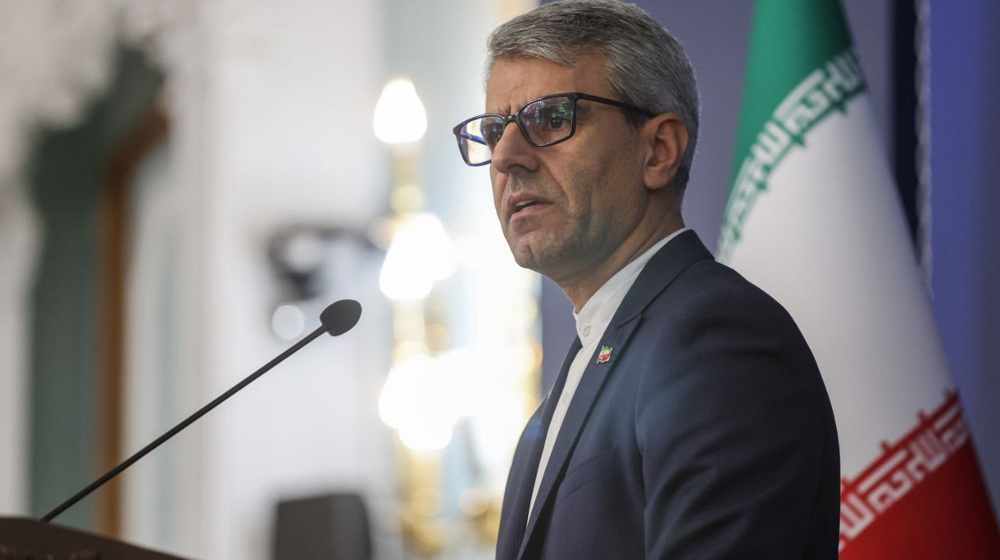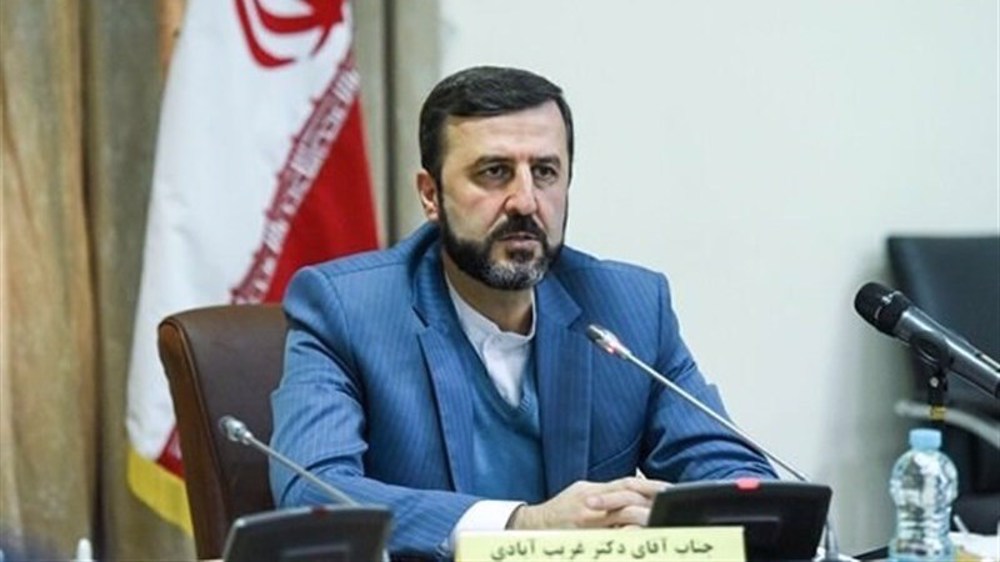Iran Envoy: IAEA chief’s Tehran visit not related to so-called snapback mechanism
Iran's permanent representative to Vienna-based international organizations says the forthcoming visit to the Islamic Republic by the director general of the International Atomic Energy Agency (IAEA) has nothing to do with the United States’ latest effort to use the so-called snapback mechanism to restore UN sanctions against Tehran.
"This visit is not related to the so-called snapback mechanism and does not come at the US' request. The [IAEA chief Rafael] Grossi's trip [to Iran] takes place on the basis of Iran’s invitation," Kazem Gharibabadi said in a post on his Instagram account on Sunday.
He added that the UN nuclear agency's chief will arrive in Tehran on Monday and hold talks with Iranian authorities on Tuesday and Wednesday.
The Iranian diplomat noted that Tehran's trust in the IAEA has been damaged in recent months, adding that it is necessary that Grossi's visit be aimed at building trust.
"We will not allow other parties to sway relations between Iran and the agency, particularly under the current sensitive circumstances," Gharibabadi said.
"It is important [for the IAEA] to assure Tehran that the agency will act on the basis of three fundamental principles of impartiality, independence and professionalism, and will not go beyond its standard principles as well as its own independent data when dealing with safeguards-related issues," he pointed out.
The UN nuclear agency chief also in a post on his Twitter account on Saturday confirmed his visit to Tehran "for meetings with Iranian authorities."
He said his talks with Iranian officials would focus on "outstanding questions related to safeguards in Iran."
I will travel to Tehran on Monday for meetings with Iranian authorities to address outstanding questions related to safeguards in Iran. I hope to establish a fruitful and cooperative channel of direct dialogue. It is necessary. pic.twitter.com/nkF0X8A4ZM
— Rafael MarianoGrossi (@rafaelmgrossi) August 22, 2020
"I hope to establish a fruitful and cooperative channel of direct dialogue. It is necessary," Grossi said.
The visit takes place over two months after the IAEA Board of Governors passed a resolution on June 19, put forward by Britain, France and Germany – the three European signatories to the landmark 2015 nuclear agreement, officially known as the Joint Comprehensive Plan of Action (JCPOA).
The resolution, the first of its kind since 2012, urges Iran to provide the IAEA inspectors with access to two sites that the trio claims may have been used for undeclared nuclear activities in the early 2000s.
The Islamic Republic rejects any allegations of non-cooperation with the IAEA, insisting that it is prepared to resolve potentially outstanding differences with the nuclear agency.
Immediately after the adoption of the IAEA report, Gharibabadi deplored it and said, “Adoption of this resolution will neither encourage Iran to grant access to the Agency based on fabricated and unfounded allegations, nor will it force Iran to come down from its principal positions."
Read more:
- IAEA chief due in Iran in line with mutual cooperation, interaction: Envoy
- No country opens its territory to inspection based on enemy claims: Iran envoy to IAEA
- Iran parliament: IAEA resolution proof of structural discrimination within UN nuclear watchdog
The IAEA's Tehran visit also comes as the United States is trying to invoke a “snapback” mechanism in the multilateral nuclear agreement despite its withdrawal from the accord in May 2018 in violation of UN Security Council Resolution 2231 that endorses the deal.
The United States' most prominent Western allies have refused to fall into step with its push to snap back the United Nations sanctions against Iran.
The United Kingdom, France, and Germany, all signatories to the JCPOA, say the US does not have the legal right to trigger "snapback" sanctions because it pulled out of the Iran nuclear deal in 2018.
Iran’s President Hassan Rouhani said on Monday that the recent meeting of the UN Security Council that led to resounding failure of the United States marked a great political achievement and a historical victory for the Iranian nation.
“There is no precedent in history of the Security Council when 14 countries opposed [the US views],” Rouhani added.
Read more:
‘Decaying empires turn to savage control previously used abroad at home’
VIDEO | Myanmar votes in last and third phase of military-run election
Iranian pharmaceutical industry flourishing
Netizens react with outrage to another ICE murder in Minneapolis
VIDEO | Iran’s Emergency Medical Services suffered $2.14m in damage during unrest: Director
Discover Iran: Hormozgan’s coastal villages blend sea, culture and community tourism
VIDEO | Family of Minneapolis shooting victim reject US administration's ‘lies’ about killing
Stockholm protesters condemn Israeli attacks on Gaza despite ceasefire













 This makes it easy to access the Press TV website
This makes it easy to access the Press TV website